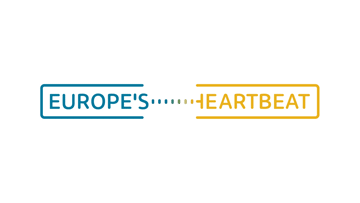Social insurance contributions in Germany are roughly shared equally by employer and employee. The employer withholds and distributes them to the social insurance institutions. In marked contrast to some other industrialized countries, the core social security in Germany is financed collectively by means of a process of redistribution. The current social costs (e.g. for pensioners, sick people and/or those in need of nursing care and unemployed people) are paid directly from contributions by employees and employers.
Health insurance
Health insurance
Employees earning a gross wage of up to EUR 66,600 (2023) per year are compulsorily insured by one of the public health insurance providers (Gesetzliche Krankenversicherung - GKV). Employees whose earnings are above this income threshold can choose from both public and private insurance companies (Private Krankenversicherung - PKV). Employee and employer also share the premiums for private health insurance plans.
The basic flat health insurance contribution rate (public health insurance) amounts to 14.6 % of the employee’s gross income and is equally shared between employer and employee. Employees pay an additional contribution set individually by each public health insurance provider.
The average rate of additional contributions for 2023 has been set at 1.6 percent by the Federal Ministry of Health. The German National Association of Statutory Health Insurance Funds (GKV-Spitzenverband) provides a list of all public health insurance providers and their additional contribution rates online.
Nursing care insurance
Nursing care insurance
Nursing care insurance is organized in more or less the same way as health insurance, with a contribution rate of 3.05 percent of the gross wage. Employer and employee both pay half of the contribution rate, with childless employees paying an extra 0.35 percent on top of their contribution. The premiums are deducted in the course of payroll accounting and transferred to the nursing care insurance company via the health insurance company.
Pension insurance
Pension insurance
Pension insurance is compulsory for employees. The premium is 18.6 percent of the gross wage and is divided equally between employee and employer. The employee’s health insurance company is responsible for collecting these contributions.
Unemployment insurance
Unemployment insurance
The premium for the mandatory unemployment insurance is 2.6 percent of the gross wage and is shared equally by the employer and employee. Contributions for unemployment insurance are collected by the health insurance company of the employee, which transfers the money to the Federal Employment Agency (Bundesagentur für Arbeit).
Accident insurance
Accident insurance
Statutory accident insurance provides coverage if an employee suffers an accident at the workplace or on the way to work. In contrast to the other four obligatory insurances (health, nursing, pension, and unemployment), the costs for accident insurance are exclusively borne by the employer.
All employers must inform the relevant statutory accident insurance association (Berufsgenossenschaft) about the establishment of their business and register with this organization. The accident insurance rate is determined on the basis of the company’s total remuneration sum and the hazard category of the work concerned (the hazard category is determined by the relevant accident insurance association).
According to the German Social Accident Insurance (DGUV), the average accident insurance contribution in 2021 was 0.96 percent. DGUV provides detailed information on the individual calculation of accident insurance contributions online.
Generally speaking, social security contributions are roughly shared equally by employer and employee. Only the costs for accident insurance are exclusively borne by the employer. In total, the employer’s share of social insurance contributions amounts to approximately 21 percent of the employees gross wage.
A common fund exists for all social security components. Only the health insurance provider can be chosen individually by the employee. Employees in Germany receive a net wage or salary from which tax and social security contributions have already been deducted. The employer withholds the tax that the employee is required to pay and transfers the money directly to the tax office (Finanzamt). Accordingly, all employees must be registered with the local tax office.
Social security contributions are also withheld by the employer after calculation of the gross wage and transferred to the employee’s health insurance company (which then distributes all of the contributions excluding accident insurance to all relevant parties). The employer separately has to pay the contributions for the accident insurance to the relevant Employers’ Accident Insurance Association (Berufsgenossenschaft).
| Social security insurance components1 | Employer share (in % of gross wage) | Empolyee share (in % gross wage) |
|---|---|---|
18.6 % pension insurance National Visa | 9.3 % | 9.3 % |
| 14.6 % health insurance2 | 7.3 % | 7.3 %2 |
| 2.6 % unemployment insurance | 1.3 % | 1.3 % |
| 3.05 % nursing care insurance | 1.525 % | 1.525 %3 |
| 0.96 % accident insurance | 0.96 %4 | - |
(1) plus minor allocations
(2) plus additional contribution which each health insurance company individually may impose on employer and employee (equal shares). The average additional contribution for 2023 defined by the Federal Ministry of Health is 1.6%.
(3) childless employees aged above 23 years pay an extra 0.35% nursing care insurance
(4) average accident insurance contribution 2021 according to German Social Accicent Insurance (DGUV)
International Coordination of Social Insurance Systems
In order to facilitate the international transfer of employees, Germany has signed social insurance agreements with countries including e.g. Australia, Brazil, Canada, China, India, Israel, Japan, South Korea, Turkey, and the USA.
Within the EU, the dispatch of employees is facilitated by EU regulations on social security coordination. This allows transferred employees to remain within the national social insurance of their home country, if they are posted to Germany for a certain time. In this case, the employer does not have to pay German social security contributions for the employees temporarily located in Germany.
Social Security in North Rhine-Westphalia
To complement general social legislation and the associated advisory and service infrastructure in Germany, North Rhine-Westphalia provides additional services.
Health and Safety at Work
To ensure that employers can meet the legal requirements for the protection of employees at the workplace, the state of North Rhine-Westphalia has set up advisory centersat the five regional governments. Here, companies and employees can obtain advice on all matters relating to health and safety at work. In addition, the State Institute for Health and Safety at Work provides scientific information on related topics.
Education Check
Science and technology are constantly producing new knowledge which affects the world of work. To be able to remain competitive in the market, companies need employees who are prepared to undergo further training. With the Education Check, North Rhine-Westphalia provides both employers and employees with an incentive to take advantage of professional training opportunities. The Education Check is aimed at companies with a maximum of 50 employees who have a particular demand for further training. When a company’s employees undergo further training, the state of North Rhine-Westphalia covers half of the cost – to a maximum of EUR 500 per Education Check.
Throughout the state, there are around 175 counseling centers providing detailed advice.
Store Opening Times
In Germany, the federal states are responsible for the regulation of the store opening times. Since 2018, the following rules have applied in North Rhine-Westphalia: From Monday to Saturday, business proprietors can determine their opening times without any revstrictions from midnight to midnight. Sunday is protected on principle and not a sales day. However, cities and municipalities have the possibility to determine special openings for up to eight Sundays a year.
This does not affect conditions for employees with regard to labor law.


